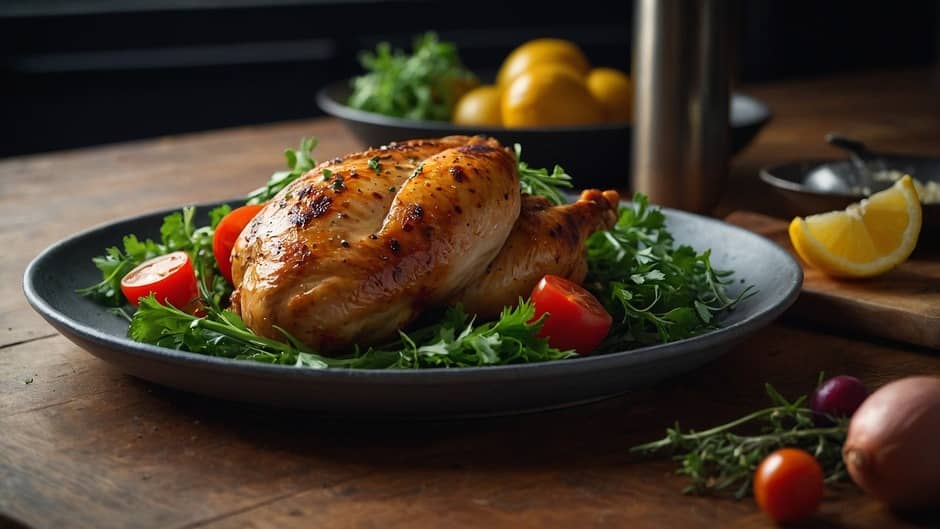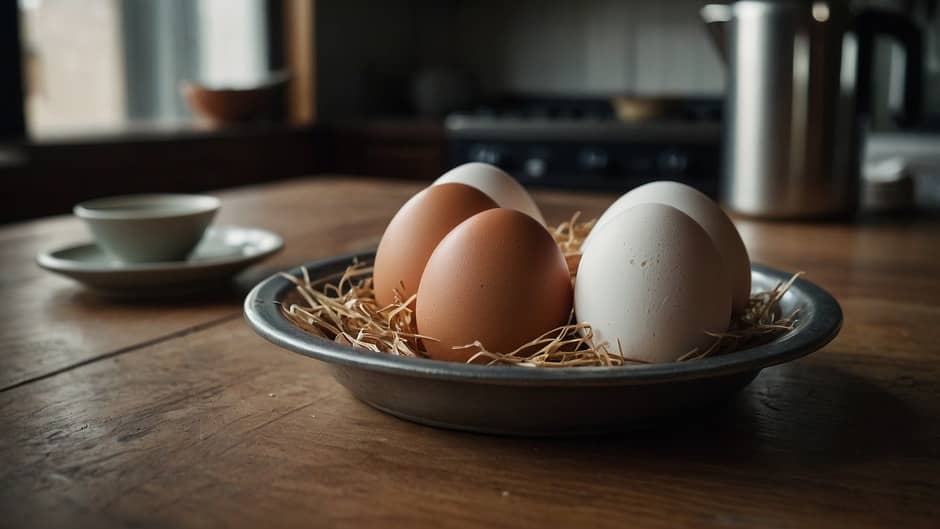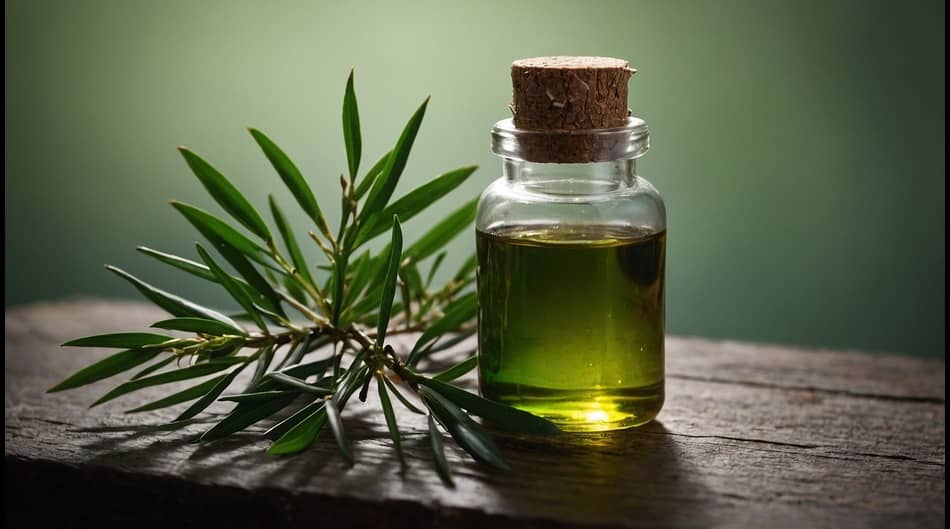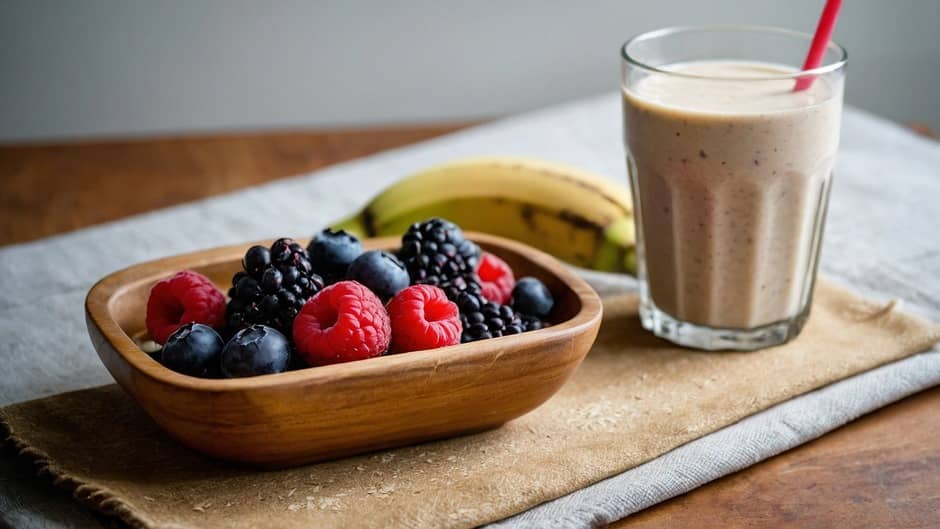Table of Contents
- How Much Protein Do You Really Need To Build Muscle?
- How Can You Get Enough Protein in Your Diet?
- How Much Protein Do You Really Need?
- How Much Is Too Much Protein For One Day?
- How Many Calories Do You Actually Need A Day?
How Much Protein Do You Really Need To Build Muscle?
You may have heard that in order to gain muscle, protein is necessary.
That being said, how much do you actually need?
Eating any kind of protein won’t do the trick; you also need to acquire the right balance to support the growth and repair of your muscles.
A very common question that people has is how much protein on keto per day? Generally speaking, the recommendation is to get between 1.2 and 2.2 grams of protein per kilogram of body weight per day.
Thus, if you weigh 70 kg (154 pounds), your daily protein intake should be between 84 and 154 grams. This reach includes a large number of individuals who are trying to gain more mass or who are engaged in strength training.
However, what role does this protein play?
Similar to the building components of your muscles is protein.
Your muscle fibers are actually being torn apart every time you train out.
Over time, this cycle of maintenance builds stronger, more grounded muscles, and protein helps heal these tears. The timing of protein consumption is also crucial.
Consuming protein soon after working out can support improved development and start the muscle repair cycle. It’s not enough to merely eat enough protein to maximize muscle growth and repair; you also need to distribute that protein throughout your day.
Also Read – The Effect Of Physical Activity On Mental Health – Physical Exercise Effects On Mental Health (2024)
How Can You Get Enough Protein in Your Diet?
To obtain the proper quantity of protein, you don’t have to limit yourself to chicken breasts or protein smoothies.
There are several methods to include more protein in your diet. Nuts, fish, eggs, beans, lentils, and lentil-based foods are excellent sources of protein.
On the other hand, one serving of lentils can offer about 18 grams of protein, but one chicken breast can offer about 30 grams.
Assuming you’re a vegetarian or vegan, combining various plant-based proteins, such rice and beans, can help you ensure that your body gets all of the essential amino acids.
Remembering the importance of harmony is also crucial.
Carbs and fats are necessary for your general health and energy levels, just as protein is for developing muscle.
You need carbohydrates to fuel your workouts, and healthy fats assist many bodily functions. In light of this, make sure your eating schedule is balanced and fully supports your wellness goals.
You can successfully reach your muscle-building goals by monitoring your protein consumption and making any required modifications.

How Much Protein Do You Really Need?
It’s time to talk about protein; it plays a critical role in staying solid.
Consider your body to be a construction site. Proteins are structural building blocks that support and maintain every part of your body, including your muscles, skin, and hair.
But how much do you actually need?
Generally speaking, 0.8 grams of protein per kilogram of body weight is a decent rule of thumb for most people. That means that if you weigh 70 kg, or around 154 pounds, you would need about 56 grams of protein each day.
This amount is mostly sufficient to keep your body functioning as it should.
However, if you want to gain muscle or are very active, you can need up to 1.2 to 2.0 grams per kilogram of body weight.
Right now, if you’re wondering what this looks like overall, consider this: a cup of beans has roughly 15 grams of protein, whereas a serving of chicken breast has about 30 grams.
As a result, you don’t need to consume enormous amounts of food to meet your protein goals—just a little bit of planning can make a big difference.
Also Read – Can Lung Function Improve After Quitting Smoking? – How To Detox Lungs After Quitting Smoking? (2024)
How Much Is Too Much Protein For One Day?
We’ve talked about getting the right amount of protein, but what happens if you consume too much of it?
Could you have gone overboard?
In a nutshell, the answer is yes.
Your kidneys may become overworked if you consume a lot more protein than you should since they will have to work harder to process it all.
Furthermore, excess protein that your body doesn’t use might be stored as fat. For most people, eating up to 2 grams of protein per kilogram of body weight each day is safe and helpful, especially if you are an active individual.
However, it generally won’t be great for your welfare if you start going above this, especially for extended periods of time.
Your kidneys may not be happy with you, and you may also be experiencing issues such as dehydration or malnourishment. To put it simply, balance is essential even while protein is essential.
The secret is to figure out how much is appropriate for your lifestyle and not to overdo it. As in everything else in life, moderation and variety are essential.
As a result, be aware of your body and adapt as necessary.
How Many Calories Do You Actually Need A Day?
Similar to fuel for your body are calories.
Your age, orientation, weight, level, and degree of activity level are some of the criteria that determine how many calories you actually desire to consume each day.
A youthful individual with high activity level, for instance, will need more calories than an older adult with lower activity level. Adults need two thousand to two thousand calories a day to stay at their current weight.
But this could differ a lot. If you want to gain weight or grow muscle, you may require more calories than if you want to lose weight.
Think about it this way: you burn more calories when you exercise frequently, therefore you’ll require more to maintain your energy levels.
Conversely, you’ll need less calories if you’re not as active. Furthermore, it’s critical to make sure that, rather than coming from sugary snacks or fast food, those calories originate from healthful meals like whole grains, lean proteins, fruits, and vegetables.
As such, achieving the ideal calorie balance is linked to understanding your own body and lifestyle.
It has to do with fueling your body with the proper kind of energy to maintain your optimal state of health and with carefully taking into account numbers.
Read us on Medium.




